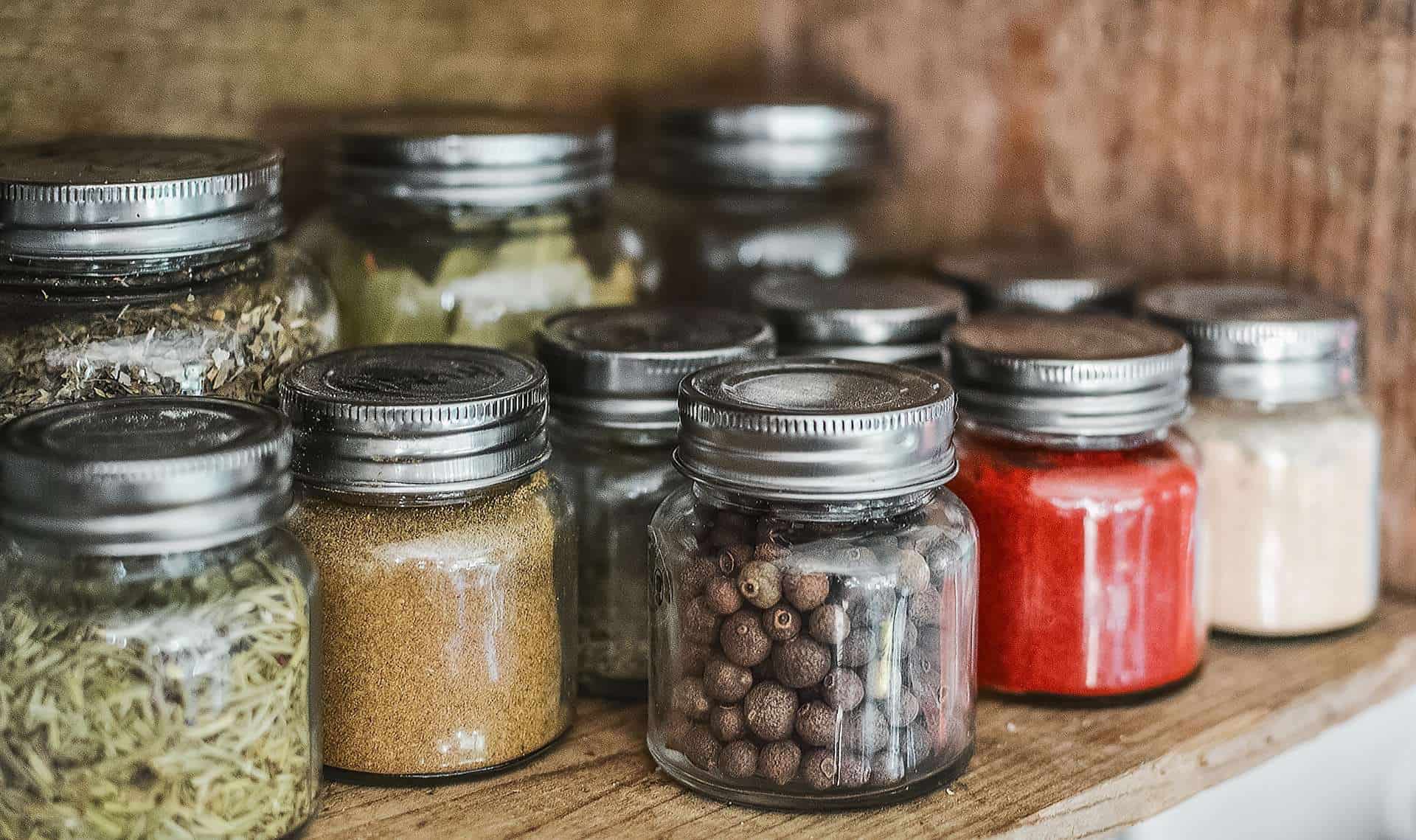Here are some really quick and easy useful tips on how everyone should think about storing their herbs and spices on a long term basis.

Today while I was in the kitchen, rearranging some of the cookware, it suddenly dawned on me that I haven't written a post about how to store herbs and spices. I was filtering through my pantry and made a mental note to self to write a brief guideline about the importance of proper storage. My cooking often includes an assortment of herbs and spices (dried or fresh) so when it comes to groceries I tend to buy the dried version in bulk.
Purchasing in bulk is one of the most cost effective ways to save and/or stay within a budget. This is another reason why I refer to bulk buy, to ensure a moderate amount is kept at hand when required. This decreases the chances of running out of a particular herb or spice in the midst of cooking and having to do a last minute dash to the store to replenish stock.
About herbs and spices
Herb and spices come in varied forms; fresh, dried, whole and ground. Fresh herbs from the garden or purchased from a supermarket will have the most potent aroma and yield an outstanding taste towards food.
It is far more superior to its dried counterpart however, that doesn't mean the dried or ground version should be overlooked. Once fresh herbs are picked (unless dried or frozen) they quickly begin to lose some of that flavour and perish. On the other hand, spices don't spoil they simply lose their flavour and colour with time depending on storage.

The shelf life and storage
Let's talk more about the dried, ground and whole variations. Typically whole spices (i.e. pimento seeds, nutmeg, cinnamon sticks, cloves, peppercorns etc..) have a longer shelf life than ground spices because they haven't been disturbed and exposed to oxidation. In terms of longevity, you're looking at 1 year minimum and anything up to even 5 years (wow that's a long time).
I'm sure most people won't have kept them that long, but that is an interesting fact nevertheless. What determines longevity is storage; whether they're been unopened and still in the manufacturers protective sealant, as companies lock in the freshness immediately after processing and another factor is where they've been kept.

How to store herbs and spices long term
In order to extend the shelf life and get the most of your culinary enhancements it is very crucial to know where and how to store them. Proper storage will result in an extension of retaining freshness and saving money. Also keep in mind some of the following tips;
- Store out of direct sunlight and humidity - Yes, this is imperative the volatility of culinary enhancers can quite quickly lead to an immediate loss of freshness. I store mine in a pantry and sometimes my cupboard both are cool, dark places, but never around heat or moisture. Keep away from cooking surfaces that wind up near the cooker and don't store in the refrigerator as this can lead to moisture.
- Store in airtight containers - This is should be self-explanatory by now, if you want to the flavours to retain then make sure everything is kept in an airtight container. I would suggest obtaining some jars and labelling them. I have some large jars for brought for me as a gift which I was elated about as they came in handy for dried herbs.
- Freezing method - of course if you have the space to do this, then this might a good option for herbs. I like to freeze fresh herbs that I'm not using, straight away, in an airtight freezer bag. I also freeze leafy herbs that are dried such as curry leaves, bay leaves, tarragon. Again simply label them and they too can last for a good few years.

Storing dried pulse and others
Well we're still on the subject of effective storage I thought it might be ideal to mention an ingenious to store pulses and other dried goods without compromising nutrition. I like to buy pulse in a large quantity, we're talking 3kg at a time. I consume legumes in amass so finding somewhat to put them is necessary.
My frugal way of storage is to pour the pulses into this used giant protein container. At first I was worried about damaging the vitamin content but from conducting my own research there doesn't appear to be any proof to substantiate my worries.
In fact legumes are typically dehydrated with water, which invigorates the nutritional value, so my storage method shouldn't be a problem. As you can see from the pictures I labelled these Mammouth size containers.
The capacity to great, it holds approximately 3kg of produce is an excellent space saving choice. Hold onto any large containers you have may and put them on reserve for storing dried food.





Leave a Reply